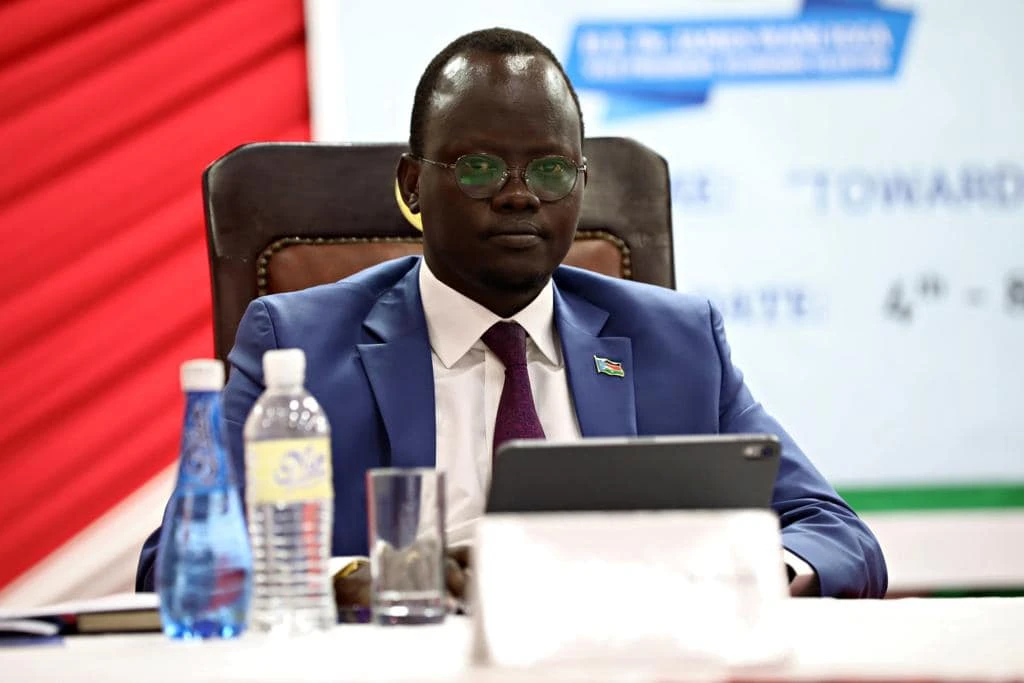
The minister of Finance and Economic Planning says in the quest for diversified, inclusive and sustainable economic growth, he will shift the country from oil-dependence to agricultural production.
Speaking at the opening of the first-ever National Economic Conference on Monday, Dr. Bak Barnaba Chol said: “We must expand to agriculture to a commercial level not only to ensure food security but also to generate income for our farmers and circulars for export.”
Prioritizing agriculture, he argued, will include paying more attention to small-scale farmers, productivity, and access to market as well as enhance in distribution system to minimize post-harvest loses.
“The government takes responsibility to rebrand existing agriculture schemes such as Aweil rice scheme, Renk mechanized agriculture, Jebel Ladu dura scheme, Zera Agri-complex, and Mangala sugar scheme to maximize their impact and reach,” he stated.
Bak stated that once more attention is given to agriculture, it will create jobs opportunities to curb unemployment, which is a major threat to the economic development in the country.
“We will cooperate through public-private partnership to realize quick results. Let us revitalize and expand so that we create jobs for our population and balance our trade with the neighboring countries, with the region and even the world. We can trade all over because we have variety of products,” Bak said.
Getting it started, Bak announced that a company would be established to spearhead agricultural investment as directed by the president.
“This company together with the Ministry of Agriculture and Food Security and the Agricultural Bank of South Sudan will work together to foster this sector,” Bak said.
With South Sudan dependence on oil up to 90% of government revenues, Josephine Lagu, agriculture and food security minister, said this has continued to subject the country to the global shocks and called for diversification of the economy rather than oil dependence.
“Diversification is the major component of any thriving economy. The current over-reliance on oil revenue leaves our economy vulnerable to external shocks such as fluctuation in global oil prices. Therefore, it is imperative that we explore and invest in alternative sectors such as agriculture, tourism, manufacturing and renewable energy,” she explained.
“These sectors have potentials to not only provide stable source of income but also to foster employment opportunities and reducing poverty.”
Speaking at the same event, Ugandan Ambassador to South Sudan, Ronnie Balya, joined the two in advocating for agriculture and diversification of the economy.
“We must abandon our backward traditional lifestyle and adopt modernity. We should move from subsistence agriculture to commercial and mechanized agriculture. The large-scale farming. I want to state that the most economically democratic sector that can cause inclusive growth is really agriculture with value addition because 80% of our people are in need,” Ronnie said.
According to 2022 World Bank Report, South Sudan was ranked as the world’s most vulnerable country to climate change and has the lowest level of coping capacity. it also placed South Sudan among world’s most politically fragile countries.